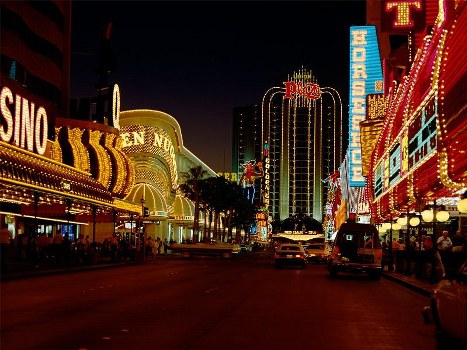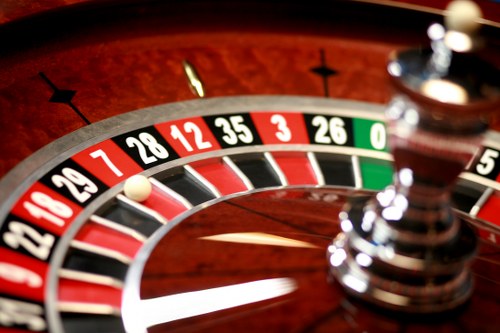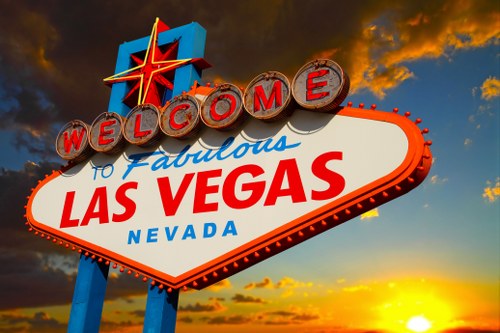Understanding Age Limits for Casinos: What You Need to Know

When it comes to visiting casinos, one of the first considerations that come to mind for many is the age requirement. **Age limits for casinos** are put in place to ensure that gambling activities are conducted responsibly and legally. In this article, we'll delve deep into the various aspects of age restrictions in casinos, shedding light on why they exist, how they're enforced, and what variations exist across different regions.
The primary reason for imposing age limits is to prevent underage individuals from engaging in gambling activities. Gambling can have significant financial and psychological impacts, and restricting access helps mitigate potential negative consequences for younger individuals. Additionally, setting age limits aligns with broader societal norms and legal standards regarding the age of majority.
In most jurisdictions, the legal age to gamble in casinos is either 18 or 21 years old. However, this can vary based on local laws and the type of casino establishment. Understanding these differences is crucial, especially for travelers who may visit casinos in different states or countries where the regulations may not be immediately apparent.

The Legal Framework Behind Casino Age Limits
The establishment of age limits for casinos is governed by a combination of federal, state, and local laws. These laws are designed to regulate the gambling industry, ensuring it operates within the confines of legality and ethics. For instance, in the United States, individual states have the authority to set their own age limits, leading to variations across the country.
For example, Nevada, home to the iconic Las Vegas Strip, sets the minimum gambling age at 21. This aligns with the state's strict regulations aimed at minimizing underage gambling. On the other hand, some states like New Jersey allow casino gambling at 18, showcasing the diversity in legal standards across different regions.
Internationally, age limits can differ even more significantly. Countries like the United Kingdom have set the gambling age at 18, which applies to both online and physical casinos. Meanwhile, other nations may have different age requirements based on their cultural and legal practices.

Why Are Age Limits Important?
Age limits serve multiple purposes beyond just legal compliance. They act as a safeguard against the potential harms of gambling, which include addiction, financial loss, and negative social consequences. By restricting access to those of a certain age, casinos help promote responsible gambling habits among their patrons.
Moreover, age limits help maintain the integrity of the gaming environment. Casinos aim to attract a responsible clientele, and by enforcing age restrictions, they ensure that their patrons are legally permitted to engage in such activities. This also helps in creating a safe and regulated space where gambling can occur without undue influence.
Additionally, age limits play a role in protecting the industry itself. By complying with legal age requirements, casinos avoid hefty fines, potential shutdowns, and damage to their reputation that can result from violations.

How Casinos Enforce Age Restrictions
Enforcing age limits in casinos involves a combination of ID checks, surveillance, and employee training. Upon entering a casino, patrons are typically required to present a valid government-issued identification card, such as a driver’s license or passport. These IDs are scrutinized to verify the individual's age and identity.
Casinos employ trained security personnel who are adept at identifying fake IDs and ensuring that only eligible patrons gain access. Advanced technology, such as electronic scanners, is also used to quickly verify the authenticity of presented IDs, streamlining the check-in process while maintaining strict compliance.
Furthermore, casinos implement internal policies that restrict underage individuals from participating in gambling activities within the establishment. This includes monitoring for underage individuals who may attempt to gamble and taking appropriate actions when violations occur, such as barring individuals from the premises or involving law enforcement when necessary.

Age Limits Across Different Casino Types
Not all casinos operate under the same age restrictions. The type of casino and the nature of its offerings can influence the legal age requirement. For instance, **land-based casinos** often have stricter age limits compared to online casinos, reflecting the higher risks associated with physical gambling environments.
**Online casinos** may have varying age requirements based on the country's regulations. While some jurisdictions treat online gambling the same as physical gambling, others have distinct laws that can set different age limits. It’s essential for users to be aware of these differences to ensure they comply with local laws while engaging in online gambling activities.
Moreover, some specialized gaming venues, like poker rooms or sports betting facilities, may have unique age restrictions or additional verification processes to cater to their specific clientele and regulatory requirements.
### The Impact of Age Limits on Casino Operations
Age limits significantly influence how casinos operate and market themselves. Compliance with age restrictions affects various aspects of their business, from employee training to marketing strategies.
For instance, casinos invest in robust training programs to ensure that all employees understand and adhere to age verification processes. This includes recognizing fake IDs, understanding the legal implications of underage gambling, and maintaining a professional demeanor when handling such situations.
Moreover, marketing efforts are tailored to target the appropriate age demographic. Casinos avoid promotions that might attract underage individuals and instead focus on attracting adults who meet the legal age requirements, ensuring that their advertising strategies align with regulatory standards.
### Penalties for Violating Age Restrictions
Casinos that fail to enforce age limits face severe penalties, including hefty fines, suspension of licenses, and potential closure. Regulatory bodies take violations very seriously, as they undermine the integrity of the gambling industry and pose significant legal risks.
Furthermore, individuals responsible for such violations, including management and security personnel, may face personal legal consequences, such as fines or imprisonment, depending on the severity of the offense.
It's also worth noting that repeated violations can lead to increased scrutiny from regulators, potentially resulting in stricter oversight and more frequent inspections, which can disrupt business operations.
### Similar Age Limits for Casinos Around the World
While the primary focus is on the age limit for casinos, it's insightful to look at similar age restrictions in related gambling sectors. Let's explore 10-15 similar age limits for casinos and how they compare:
- Lotteries: Typically, the minimum age is 18 or 21, depending on the jurisdiction.
- Sports Betting: Generally set at 18 or 21, aligning with casino age limits.
- Poker Rooms: Often require patrons to be at least 21 years old.
- Online Gambling: Minimum age varies, commonly 18 or 21.
- Bingo Halls: Age restrictions usually mirror those of casinos, at 18 or 21.
- Horse Racing: Betting age is typically set at 18.
- Social Gambling: Some regions allow underage participation for non-professional gambling in controlled environments.
- Arcade Slot Machines: Age limits often align with casinos, requiring patrons to be 18 or older.
- Casino Cruises: Gambling age onboard usually matches the port of departure regulations.
- Esports Betting: Age requirements vary, commonly set at 18.
- Fantasy Sports: Minimum age is typically 18 to participate in paid leagues.
- Charity Raffles: Age limits can vary widely, often set at 18.
- Private Casinos: Age restrictions usually follow local laws, requiring participants to be 18 or 21.
- Casino Resorts: On-property age limits for gambling align with overall casino standards, typically 21.
- Casino Casinos in Macau: The legal gambling age is 21, reflecting local regulations.
Understanding these related age limits provides a comprehensive view of the regulatory landscape surrounding all forms of gambling, emphasizing the importance of adhering to legal standards to promote responsible gaming practices.
### The Future of Age Limits in Casinos
As the gambling industry continues to evolve, so do the discussions around age limits. With the rise of online gambling and the increasing accessibility of casinos, regulators are continuously reassessing age restrictions to keep pace with technological advancements and changing social norms.
There is a growing emphasis on responsible gambling, with age limits playing a crucial role in these efforts. Initiatives aimed at preventing underage gambling are being strengthened, with more sophisticated ID verification technologies being implemented to ensure compliance.
Moreover, the debate around lowering or raising age limits in certain regions reflects broader societal changes. As perceptions of gambling shift and new data on its impacts emerge, age limit policies may be adjusted to better serve public interests while maintaining industry standards.
### Conclusion
Age limits for casinos are a fundamental aspect of the gambling industry's regulatory framework. They serve to protect individuals from the potential harms of gambling, ensure the integrity of casino operations, and align with legal standards across various jurisdictions.
Understanding these age restrictions, their rationale, and their enforcement is essential for both casino operators and patrons. As the landscape of gambling continues to change, staying informed about age limits will remain a key component of responsible and legal gambling practices.





